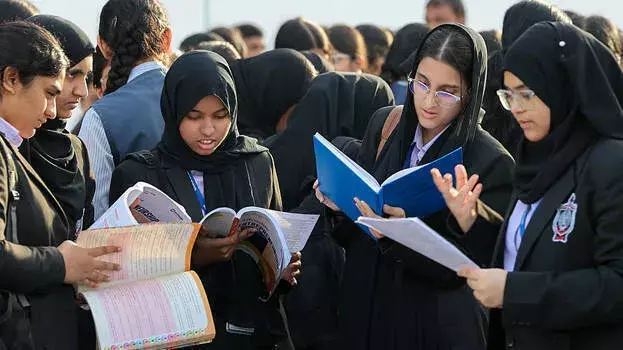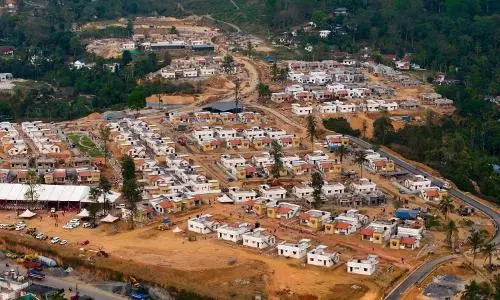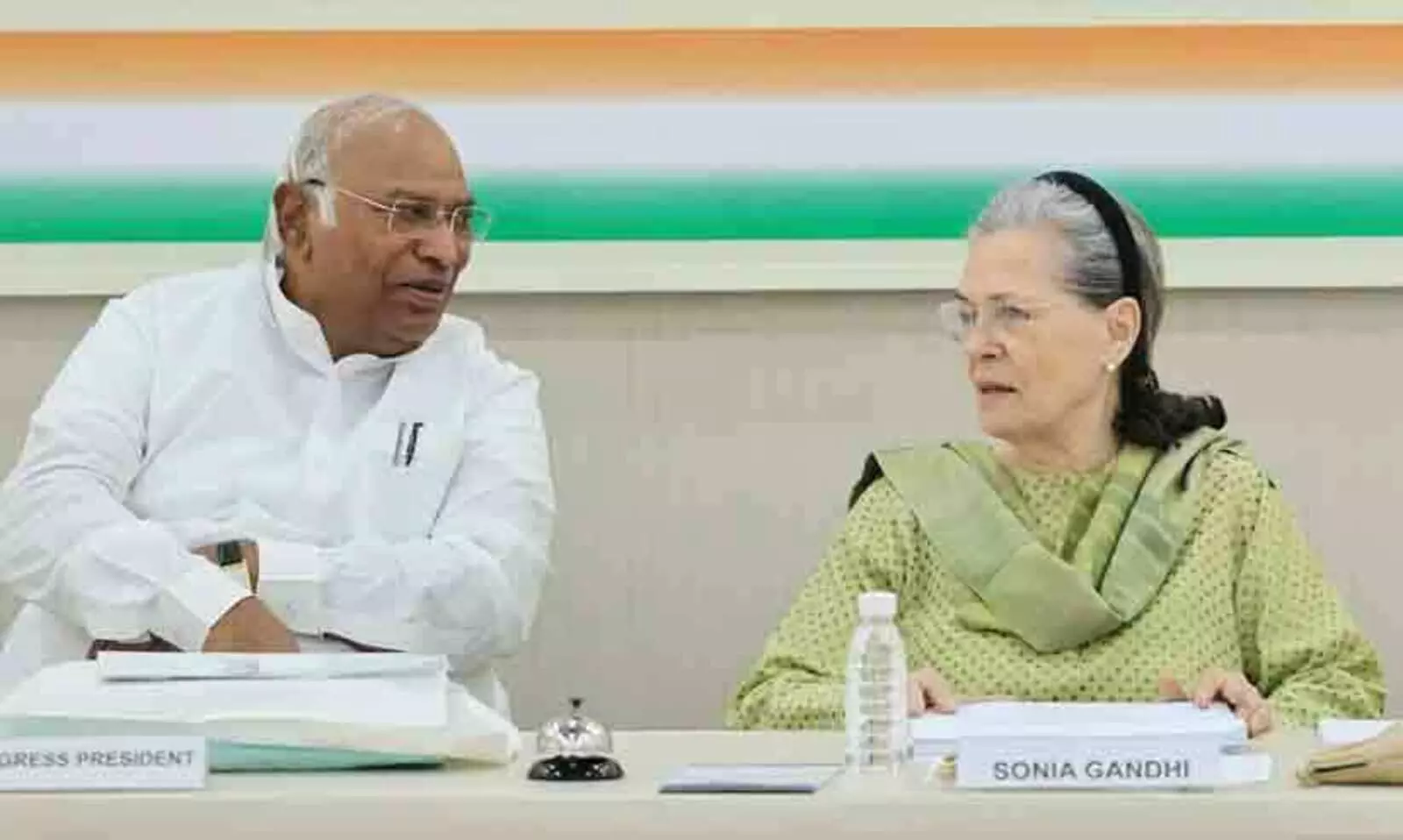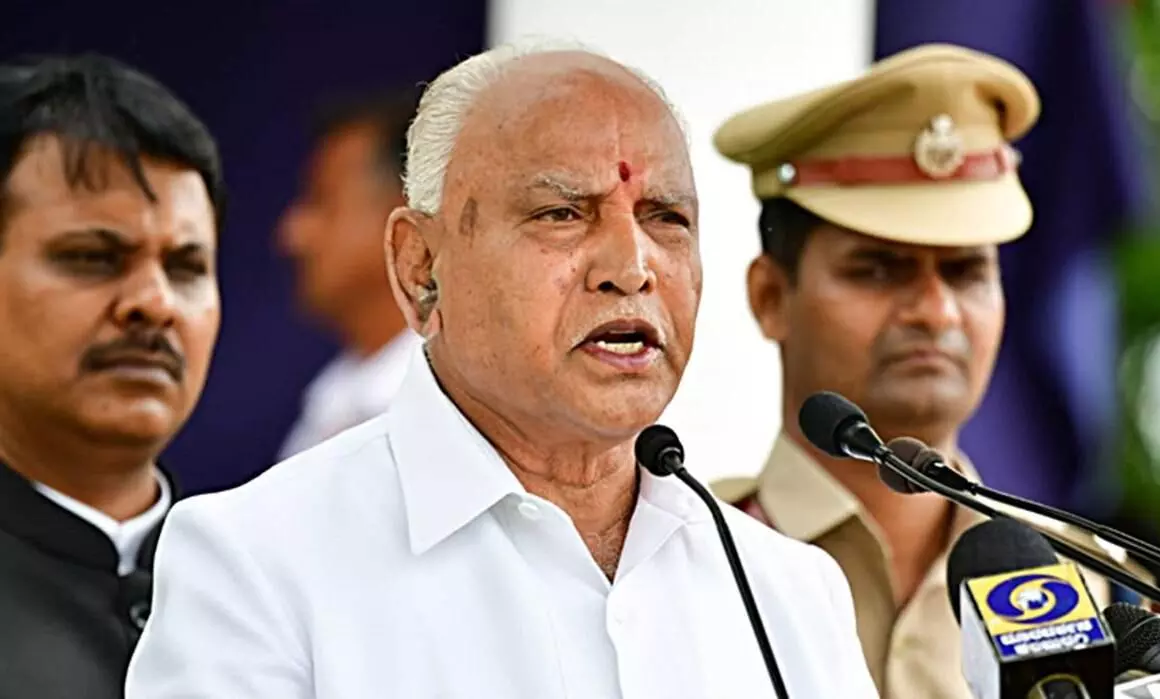
Congress's wise decision
text_fieldsThe Indian National Congress has rejected an invitation to the inauguration of the Ram Temple, built on the site of the demolished Babri Masjid in Ayodhya. Congress General Secretary Jairam Ramesh said on Wednesday that Congress President Mallikarjun Kharge, who is also the Leader of Opposition in Rajya Sabha, Parliamentary Party President Sonia Gandhi and Congress leader in Lok Sabha Adhir Ranjan Chowdhury were invited to participate in the consecration ceremony to be held on January 22, but the invitation has been declined on the grounds that it is an RSS/BJP programme to exploit faith for political gain. "Religion is a personal matter. But the RSS/BJP have long made a political project of the temple in Ayodhya. The inauguration of the incomplete temple by the leaders of the BJP and the RSS has been obviously brought forward for electoral gain", said the statement. It further explained its response in the statement, "While abiding by the 2019 Supreme Court judgment and honouring the sentiments of millions who revere Lord Ram, Shri Mallikarjun Kharge, Smt. Sonia Gandhi and Shri Adhir Ranjan Chowdhury have respectfully declined the invitation to what is clearly an RSS/BJP event". With this, the party has unequivocally declared its firm decision not to yield to the agenda of the Sangh Parivar. The Parivar is trying to politicize the programme, which should be held as a purely religious ritual, and to use it for gain in the upcoming Lok Sabha elections. The RSS/BJP leadership, which distributes the invitation letter of the temple construction committee nationwide, has started trying to portray the abstention from the event as disrespect to the nation, taking it beyond blasphemy. The frenzy in the name of the inauguration has reached the point where those who highlight the Ram temple as a matter of faith for the Hindus are also imposing 'jai' calls on the places of worship of even other religious groups. Such cunning methods have also created some confusion. Even within the Congress some leaders have expressed their willingness to accept the invitation. In this situation, the decision of the Congress to expose the hidden motives of the Sangh Parivar is welcome.
A controversy that started with the installation of an idol of Rama in the Babri Masjid in Ayodhya, culminated in the demolition of the mosque by Hindutva Kar sevaks on December 6, 1992, and ended in a tragedy that communally divided the nation of India. The then Congress-led Central government had sworn that the mosque would not be demolished, and when it was lost, that the mosque would be rebuilt where it once stood. Arrests, investigations, charge sheets and trials against the perpetrators of the demolition of the mosque went on their course. Eventually, the case dissolved into the air, with no one being punished. The Masjid-Mandir dispute went to court as a land ownership dispute. At first, the court tried a suggestion that the land could be partitioned between the parties. Finally, the apex court of the country ruled in the dispute. The Supreme Court accepted the existence of Babri Masjid and pointed out the 'egregious violation of the rule of law' in the act of demolition. Finally, as Chief Justice DY Chandrachud revealed later, the court keeping in mind 'the long history of conflicts', awarded the 2.77 acres of disputed land along with the adjoining lands to the ownership of the Rama idol. That is where the new Ram temple is coming up. Throughout the Babri Masjid-Ram Janmabhoomi dispute, the Sangh Parivar's attempt was to gain political gain by putting the chief sages, monks' organizations and priests' in the forefront. Finally, even though the temple was built, and the committee of Hindu monks were put in charge, it was the Sangh Parivar who controlled the affairs. That is why the prime minister becomes the inaugurator from laying the foundation stone to the consecration ceremony. The fact that the four Shankaracharyas have decided to not attend the ceremony saying that the consecration of the Rama idol in the unfinished temple is a violation of ritual and that it is religious priests and not politicians who should perform the temple ceremonies is proof that the Hindu community and their leadership recognize and reject the fact that the temple inauguration will end up as a political event and not a religious ceremony.
The sequence of events in Ayodhya's Ram Temple from the Babri Masjid-Ram Janmabhoomi dispute proves that Hindutva parties are looking for the means to maintain power by mixing religion, state and politics. However, a section of Congress has often fallen into the right-wing's net in this controversy, either by not recognizing the religion and politics of the issue, or because of the desire to mix it up and reap political gains. The Congress and the government it led have been able to keep the Masjid-Mandir dispute under control for as long as they have been able to keep such people at bay. When the fanatical right wing took hold, things got out of hand. It is a part of Congress party's history that the Ayodhya debacle played a major role in putting the country's governance beyond its reach. Now, when the Hindutva agenda to turn the inauguration of the temple, after securing the approval of the court, into a celebration of religious nationalism, creates confusion among political parties, including the Congress, the Congress's decision to end it will undoubtedly lend more shine to the country's secular culture.


























